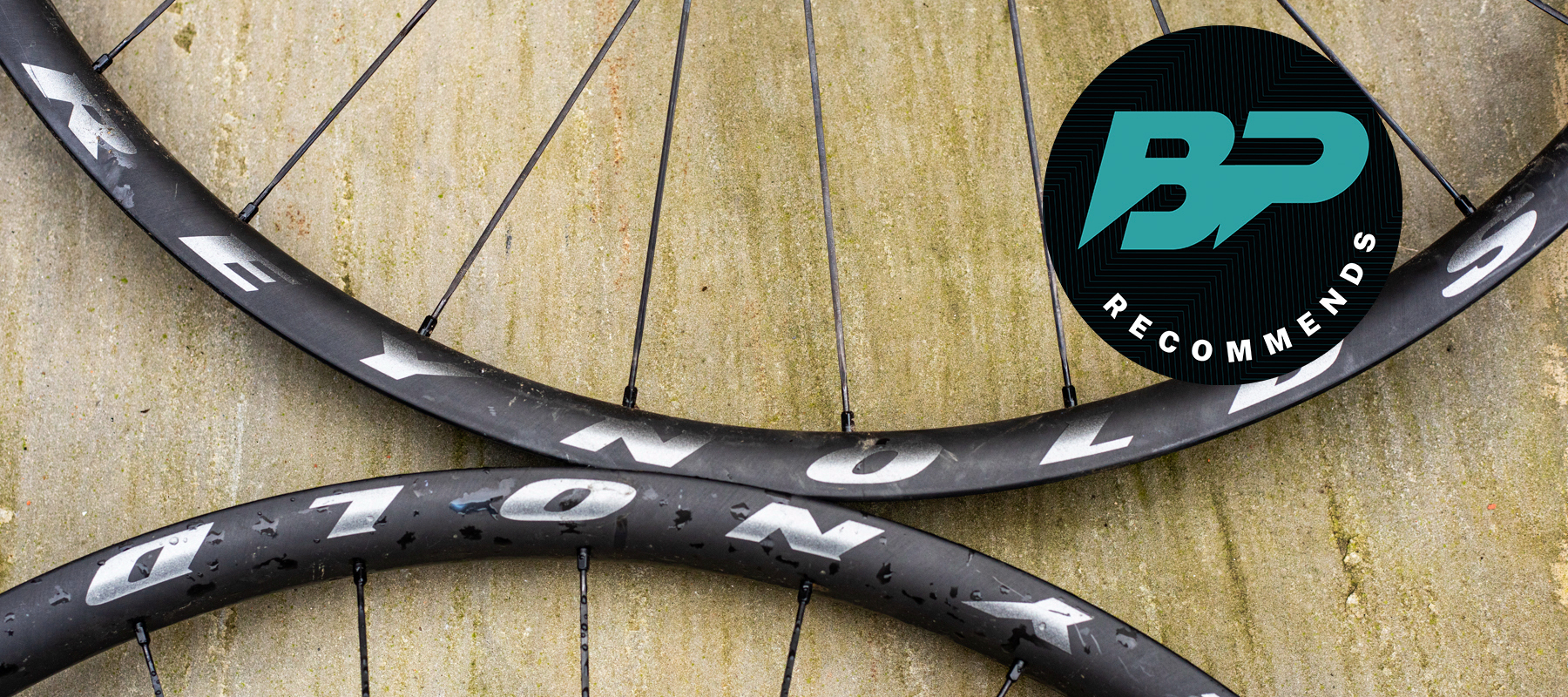Bike Perfect Verdict
Reynolds Blacklabel wheels are zippy, fast rolling and responsive, but the asking price is at the top end and some other carbon wheels feel more comfortable.
Pros
- +
Proven tough rims
- +
Quality Industry Nine hubs
- +
Direct and responsive carbon wheel feel
- +
Fast/reliable freehub engagement
- +
No issues mounting tires or maintaining pressure
Cons
- -
Still not as compliant as some rivals
- -
Hydra freehub whine
- -
Very expensive
- -
Stiff carbon wheel feel
- -
Not the lightest in the category
- -
More limited warranty than some rivals
Why trust BikePerfect
Reynolds is a carbon wheel specialist making high-end road and MTB wheels. It has sponsored leading mountain bike gravity teams and riders for years and puts its money where its mouth is by letting the world’s fastest shredders totally hammer its kit in public on the harshest terrain.
As a result, unlike some carbon wheel manufacturers, it’s picked up a bit of a rep for tough and bombproof carbon rims that don’t smash to pieces if you smash them into rocks.
I’ve tried Reynolds wheels before, both in XC and gravity guises, and my general experience was of them being very responsive, but often feeling a bit stiff and unyielding for a regular punter who isn’t traveling at World Cup DH speeds.
Pivot Factory racing and Bernard Kerr are among the top riders using Reynolds and aside from a spectacular front wheel failure at Red Bull Hardline (casing a 110-foot gap jump I’m not sure m/any rims would survive), the team has raced dozens World Cups and World Enduros without issues, presumably at speeds and levels of aggression none of us could get close to. Reynolds has also taken the ‘opportunities to build even more performance into what was already hailed as the competitive standard’.
In other words, the US brand reckoned its older Blacklabels could be made better, and primarily better in the area of compliance – an attribute directly related to ride comfort and tracking.
Compliance is about having a bit of ‘give’ in the wheel to take the sting out of terrain, roll smoother and add extra grip; a quality that can be especially important in carbon wheels, which sometimes feel super stiff compared to equivalent weight alloy ones.
With this main goal, Reynolds set about totally reengineering the rim profile and launched an entirely new Blacklabel gravity collection last summer with shallower rims. I’ve been putting the priciest ‘Pro’ carbon enduro wheels through their paces – and pricey they are too at well over 2k for a full wheelset.
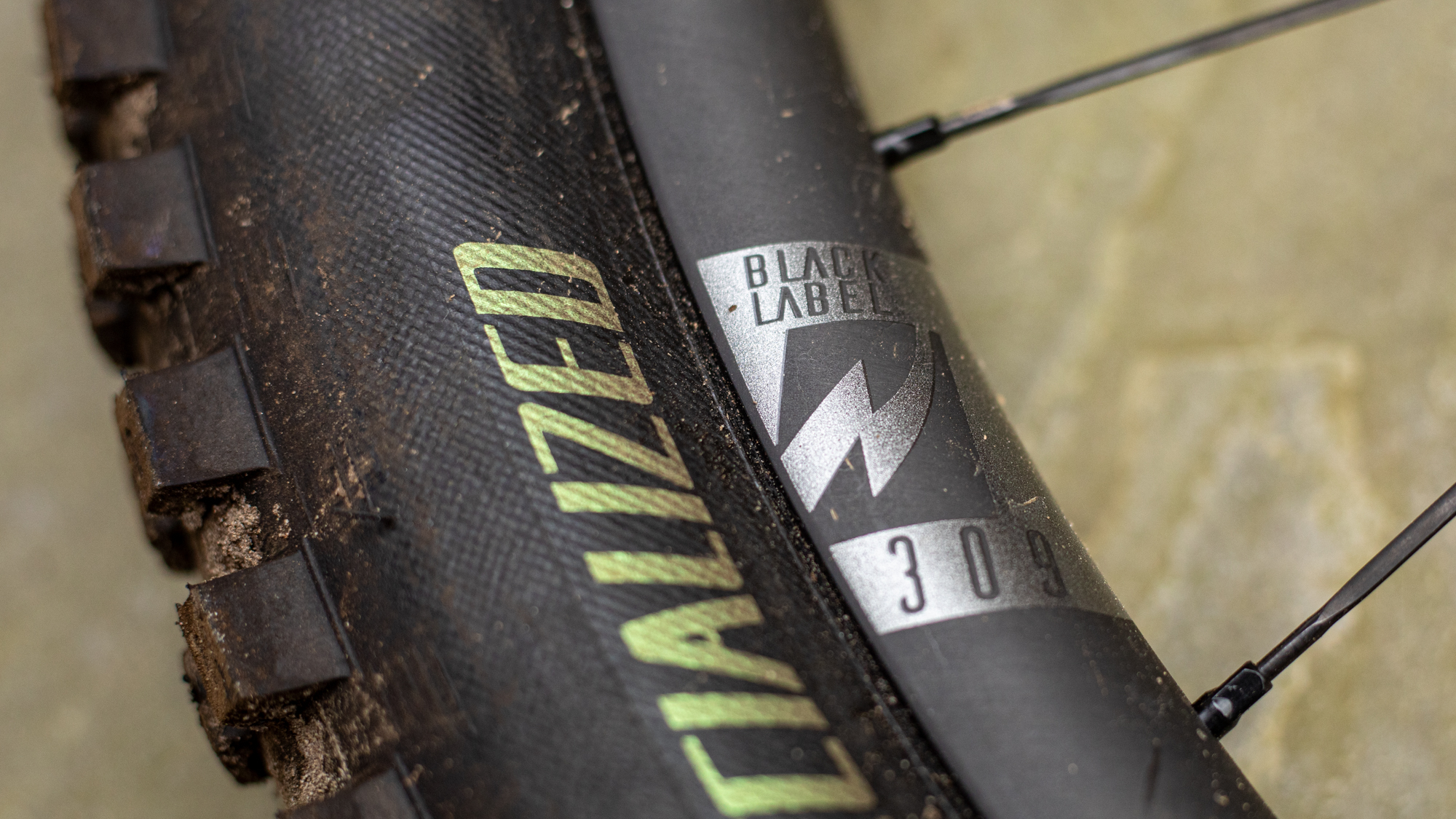
Design and specifications
With the main difference to previous generations a much shallower rim profile, it’s easy to spot this by eye with the new shape being 5.5mm shallower, as well as a tad wider.
Since older Reynolds Blacklabels had a deeper-section ‘V’ shaped rim, at the taller end of the range for modern MTB carbon rims (more in line with older Enve or Syncros shapes) there was plenty scope to go shallower, and the new design shrinks height from 26mm to 20.5mm for a more contemporary look. The brand also claims this one change alone aids in vertical compliance by nearly 40 percent.
The Enduro and Downhill rim share the same carbon lay-up and shape, with a lower (28) spoke count for the Enduro wheels, and 32 for the Downhill options. Reynolds' hookless rim is now 37mm external and 30mm internal, which means each carbon rim wall (tire lip) is a beefy 3.5mm thick. This helps resist damage from impacts and also reduces the chance of snakebite punctures (because the thicker rim wall is blunter and lessens the chance of cutting or damaging tyre sidewalls during harsh bottom out events).
The two most expensive packages, Pro and Expert, also boost rim toughness using something called IDM (Impact Dispersing Matrix), which sees a mix of fibers and a special resin added to the carbon for extra impact resistance. Furthermore, the rim is also slightly asymmetric to strengthen the wheel through more even spoke tension, which should also offer better power transfer and tautness.
Talking of spokes, 28 bladed aero Sapim CX Delta straight pulls per wheel slot into cradles on hubs using Center Lock rotors. These hubs are Industry Nine (Reynolds branded) Hydras in the Pro version with a 0.52-degree pick up, whereas the Experts use fully CNC machined Ringlé Super Bubba X hubs with four degrees of engagement and a phased six-pawl freehub.
Since I’m not a huge fan of the Hydra’s annoying whine, I was glad the Reynolds branded i9 hubs here were considerably quieter here than other wheels I’ve tested with Hydras, and alongside the near instantaneous pick up, there’s a 35g weight saving with the i9 hubs, although those extra grams will set you back an extra $400/£300 a pair over the Experts.
Blacklabels come with alloy nipples to save weight and also fully taped with quality tubeless valves installed, so you don’t have any extra faff after spending all this cash. In terms of Reynolds' replacement warranty, it’s definitely less black and white than some brands’ no-questions-asked attitude. If you damage the wheels riding, Hayes has got you for a full rebuild or repair to the original owner for two years including labour and parts, so long as you pay for shipping. After that, the lifetime warranty extends to defects only and tips into ‘crash replacement’ territory, rather than full lifetime warranty.
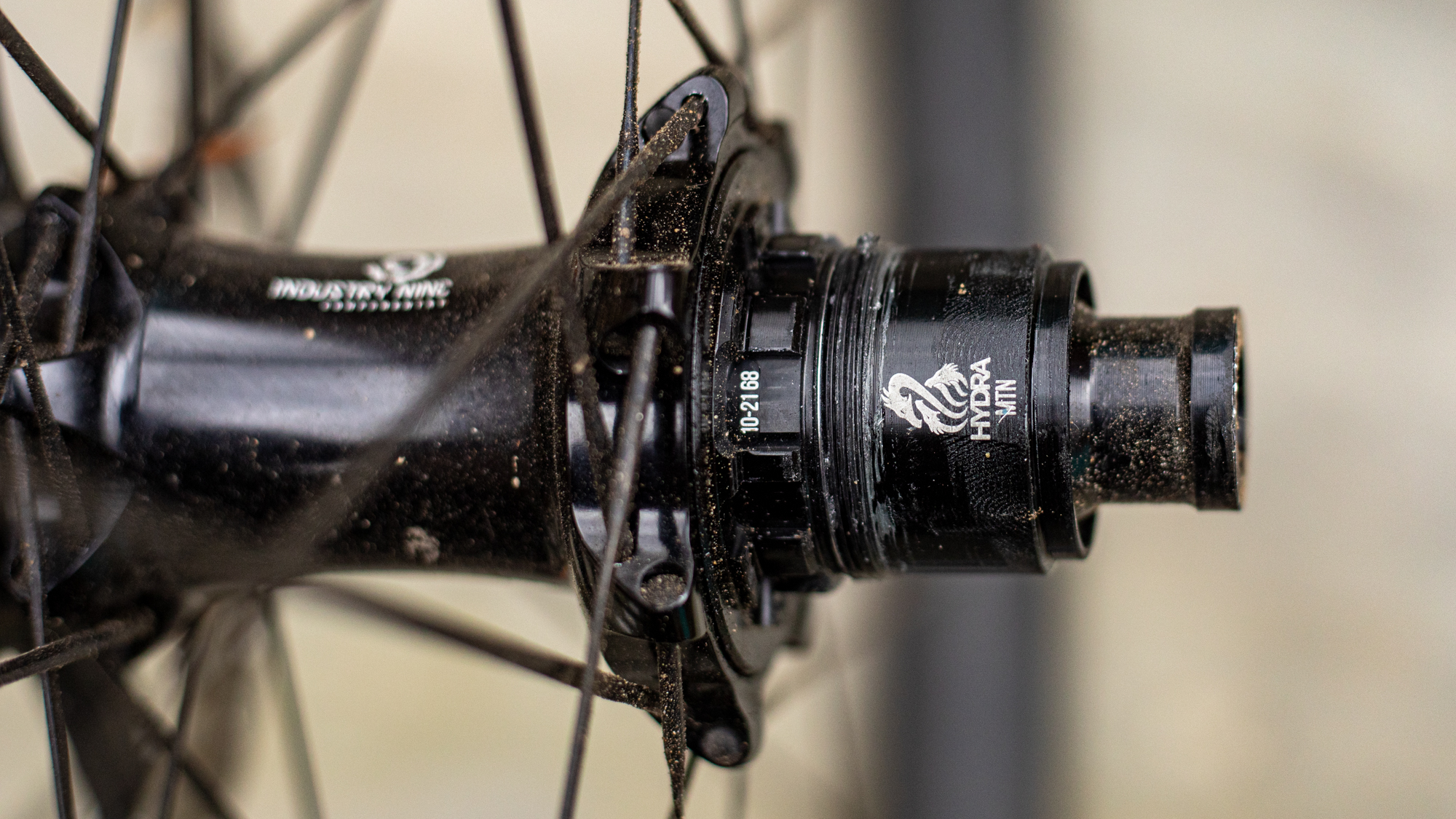
Performance
I’d kind of given up mentioning tires mounting easily and holding air in wheel reviews now most modern wheelsets manage this basic necessity. But after struggling fitting tires (to the point of cursing) with another carbon wheelset recently, it’s worth saying I had zero issues here mounting multiple tire brands.
The rim well is well shaped and smooth to give room in the middle to ‘pop’ out of, and tires inflate easily. Despite being asymmetric, the valve hole is still in the middle too, so there are no weird wedge-shaped spacers or anything to cause potential hassle or get lost fixing things in the wild.
Throughout testing, in terms of basic function, Reynolds’ 309 Pros never skipped a beat. Freehub engagement was flawless in all weathers, no loosening of spokes or coming out of true, and no noises creaks or cracks like you can get with some hubs. The i9 freehub sound is quite audible, but not too severe, and I also didn’t have a single puncture while testing, which may or may not be aided by the thicker rim walls potentially being less sharp interacting with tire casings.
Reynolds’ wheels go fast under power, feel taut when cranking hard uphill or really sprinting and the ride quality is direct and positive, but more towards the right side of responsive/flex-free carbon wheel feel, rather than razor sharp and too edgy.
The smoother ride is definitely not as jarring as older Reynolds wheels I’ve tried either, which were simply too stiff for me and veered towards the rattle your fillings, rock hard and bobbly across the ground ride sensation of earlier Enves. Don’t get me started about excessively harsh wheels either, because I’m not exaggerating to say I hated the ride quality of early carbon gravity wheels and thought they were the biggest waste of money in cycling a decade ago.
Reynolds’ solid, precise feel is duller than that and similar to many carbon rivals where steering feels very accurate (especially through the rear wheel when driving the bike with feet), without too much skipping or loss of traction at lean angles or bone-shaking over the tops of rocks and bumps.
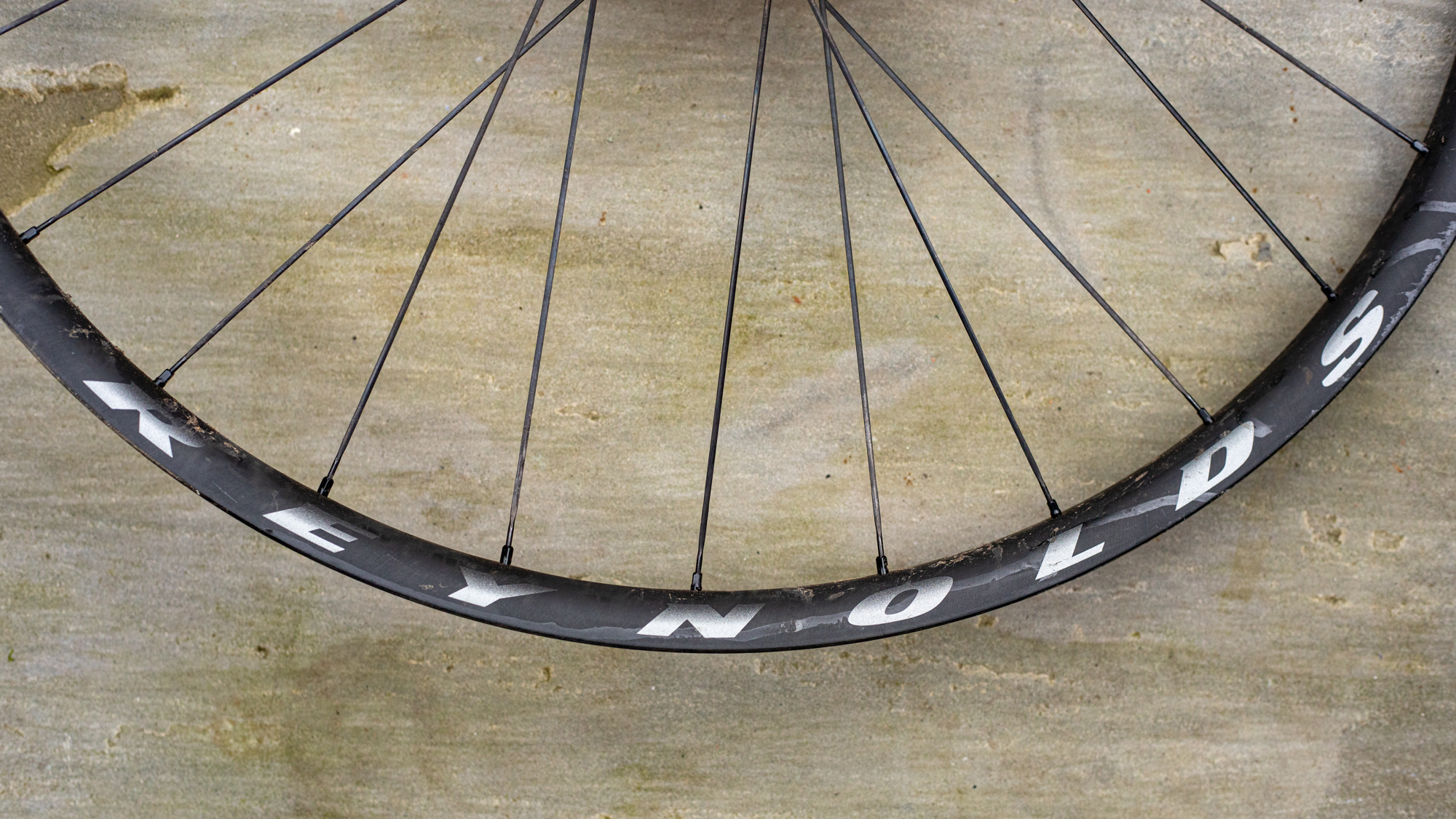
I rode the Blacklabels for a few months and they continued to perform well, including a couple of visits to Dyfi Bike Park that can dish out some heavy landings. As you can quickly get used to how wheels feel, it’s hard to test them in isolation, so as a final comparison, I back-to-backed the Blacklabels against my favorite carbon Reserve 30 SL wheels using the same tires and same pressures for repeat runs down a DH track that I personally built and know every cm of.
There’s an argument that Reserve SLs aren’t a direct apples-to-apples comparison, seeing as they target trail, rather than enduro riding, and are well over 100g a pair lighter. But, on the other hand, they fall into the same ‘ultimate one set of wheels’ category, share a 30mm internal, slightly asymmetric rim shape with near identical rim wall thickness, also use 28 spokes and come with a no-questions-asked warranty that means you can use them for whatever you like – I use them for all kinds of riding.
I’m a huge fan of the Reserves because they seem to perfectly balance the stiff, responsive carbon feel to drive the bike through berms and turns with no mushiness, and really zip up to speed stomping on the pedals. On top of this, they are also very comfortable and smooth rolling, so much so, they roll over lumpy terrain faster than just about any wheels I’ve ever tested. It's a very rough gauge for this, but on one local track I’ve ridden hundreds of times, there’s a fly off jump at the end of a rough downhill section and I’ve consistently gone further in distance off that lip on the Reserves than any other wheels (on the same bike). The only thing I can conclude from this is I’m hitting the lip slightly faster.
Reynolds wheels share some of the Reserve’s best traits and also mute trail chatter and dull feedback and harsh vibrations to hands or feet, but using my crude jump gauge, I’d argue the SLs roll a tad faster and are noticeably more urgent accelerating and surge forwards more under each pedal stroke when climbing. This difference is good for your ego and much more than you’d expect from the 120g or so weight difference between wheelsets might suggest too.
Another area where the Reserves excel is in feeling marginally more comfortable, planted on the ground and smoother. This aids in tracing terrain, but also in sensing exactly what edge blocks are doing on the ground and massaging the limits of traction. So, rather than digging in like hell, and letting go like hell, that earlier generations of carbon MTB wheels could, the SLs can handle life on the edge without spitting the dummy.
I’m obviously splitting hairs here and if you didn’t directly compare on the same day, I suspect there’s not a massive difference between the Sls and the Blacklabels, but, with wheels over two grand you might as well go for what suits best and (from memory rather than direct back-to-backing), I’d rate the Blacklabels as feeling more like regular HD30 Reserves than SLs, which might make them better suited to harder charging or heavier riders.
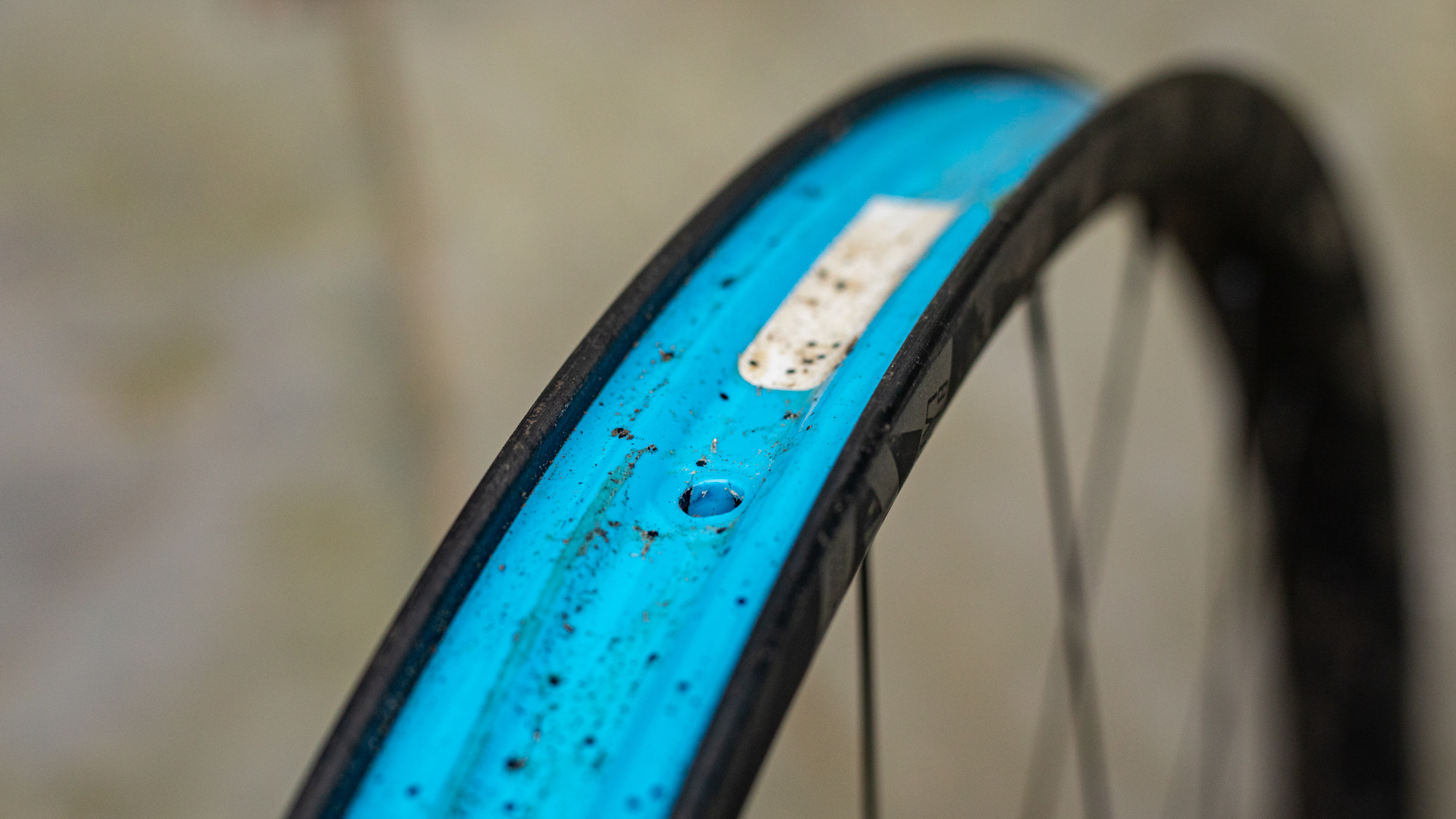
Verdict
Reynolds Blacklabel 309 Pro wheels perform great and from toughness to ride quality to hub performance, I had zero issues testing them.
The new shape makes them far less jarring and stiff than predecessors, but they’re still at the ‘traditional carbon wheels’ level, compared to more comfortable and specifically damped designs like Crank Brothers Synthesis and Zipp 3Moto that offer a noticeable increase in terrain tracking.
Reynold’s warranty is also less unconditional than brands like Reserve, whose 30SLs I also really rate. All this means that, yes, Reynold’s wheels function perfectly and might well last forever, but they’re hard to unreservedly recommend without offering exceptional performance that all riders will notice, despite costing over two grand.
Tech specs: Reynolds Blacklabel 309 Enduro Pro wheels
- Price: $2,299.00 / £2,200.00 / CAD $2,175.10
- Components: One pair of carbon wheels including rim tape, tubeless valves and freehub body
- Freehub options: SRAM XD, Shimano HG / MicroSpline
- Options: 27.5 or 29in, 28 spoke ‘enduro’ or 32 spoke ‘DH’ configuration
- Weight: 1,813g pair (Rear 963g, front 850g)
- Rival products: Reserve HD30, Enve Foundation AM30
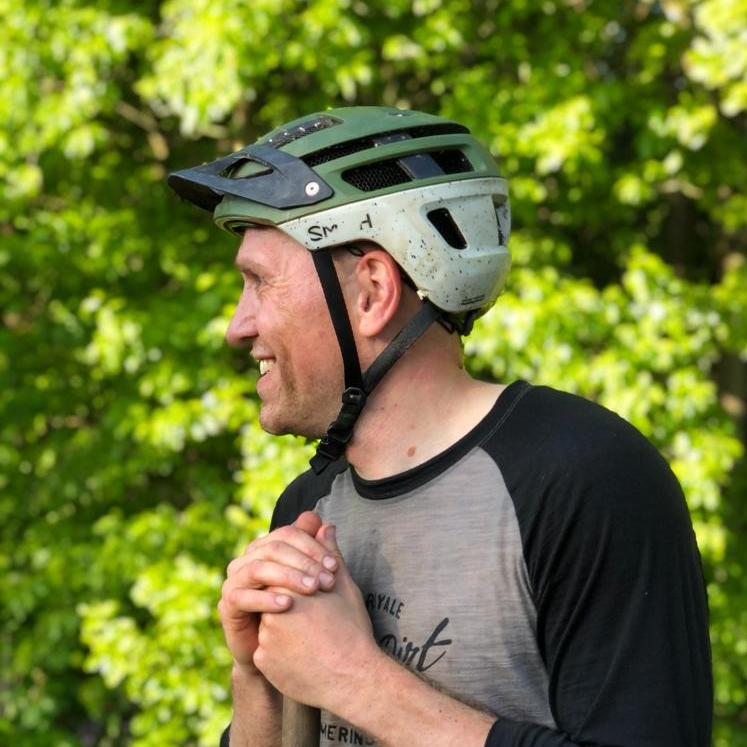
An ex-elite downhill racer, Mick's been mucking about and occasionally racing mountain bikes for over twenty years. Racing led to photo modelling and testing kit for magazines back in the day, and, nowadays, he's mostly riding enduro-style terrain on conventional and electric bikes. As curious as ever about products and tech, he's as likely to be on the other side of the lens or computer screen rating, reviewing and shooting all the latest gear. Mick's list of regular clients includes Bike Perfect, MBR, MBUK, and most of the leading UK MTB publications at one point or another.
